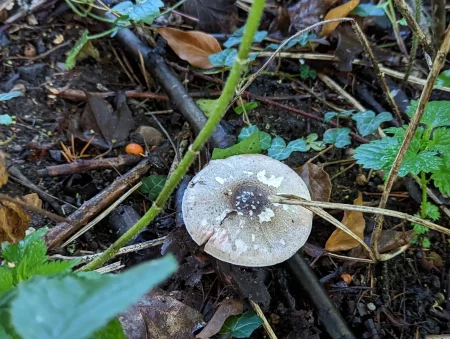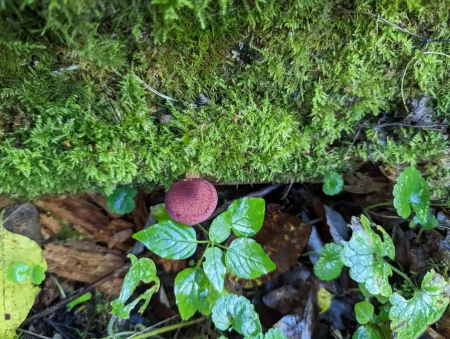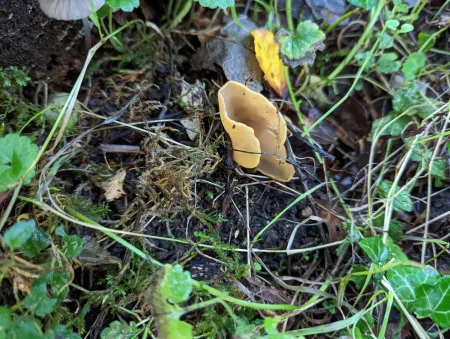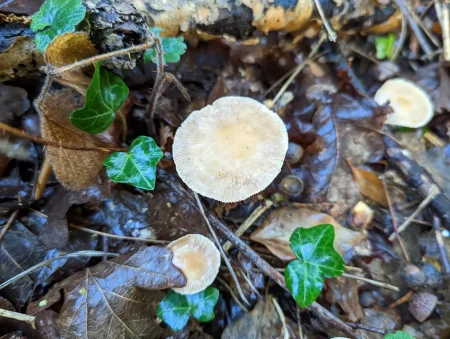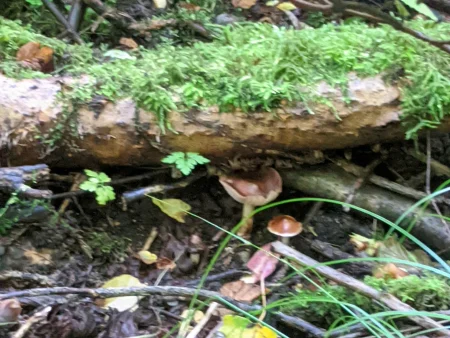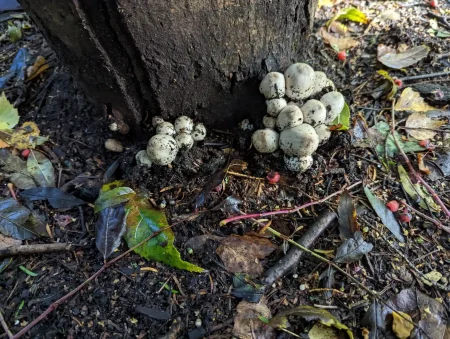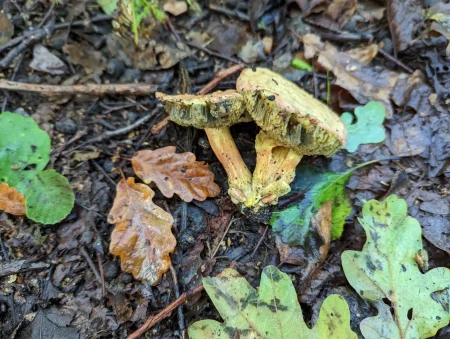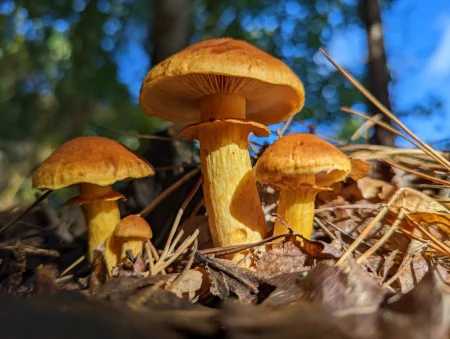Today was fairly wet and damp, with a cold breeze. The sky was clear and bright and the sun was out.
ENTRANCE AREA
I saw a Parasola plicatilis and Coprinellus disseminatus along the entrance path from the main car park.
In the entrance yard, I saw the Agaricus species from the previous week — they had grown far bigger.
After entering the reserve, I saw a possible Agaricus moelleri (Fig. 3.0) under some deciduous trees.
BASECAMP AREA
On the way to and around Basecamp, I saw some Tricholomopsis rutilans on a rotting log (Fig. 3.1) and a Peziza species (Fig. 3.2).
The trooping, orange Laccaria laccata from last week was still around, as were the remnants of the Mutinus caninus from the previous week.
THE DELL
Around The Dell, I found more Parasola conopilea and a Xerocomellus species (Fig. 3.3), a cluster of small Mycena (Fig. 3.4) and Coprinellus micaceus in the grassy areas (Fig. 3.5).
Xerocomellus species
The Dell
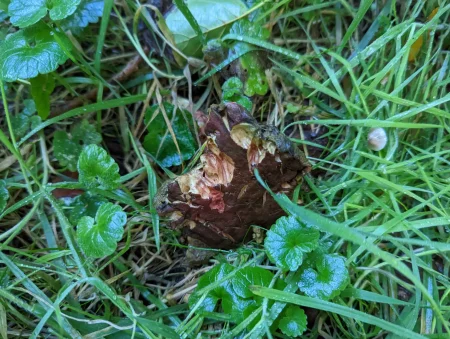
Figure 3.
Mycena species
The Dell
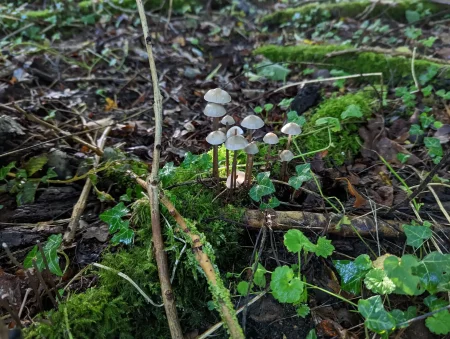
Figure 3.
Coprinellus micaceus
The Dell
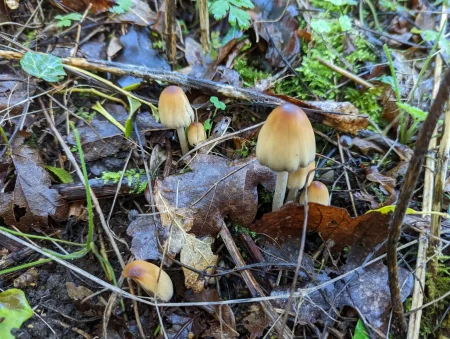
Figure 3.
SANDY-GLADE AREA
After re-joining the woodland trail, I found Hebeloma crustiliniforme (Fig. 3.6).
ENCLOSED AREA
In the wooded area at the end of the drainage channel, the Clavulina coralloides was still present as was the Picipes badius and Collybiopsis ramealis.
I found an Inocybe species (Fig. 3.7), and Pluteus leoninus.
YEW GROVE AREA
At the Yew Grove, out of the bottom of one of the circle logs, I found immature Coprinopsis atramentaria (Fig. 3.8).
OUTPOST AREA
Later on the trail I found some Scleroderma citrinum (Fig. 3.9), a few greyish fungi (fig 3.10) a white species (Fig. 3.11), Coprinopsis lagopus (Fig. 3.12) and Paxillus involutus.
Scleroderma citrinum
The Outpost Area
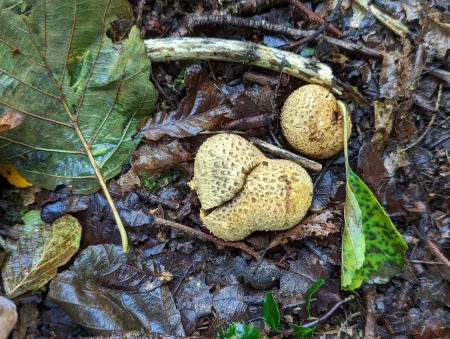
Figure 3.
Unidentified
The Outpost Area
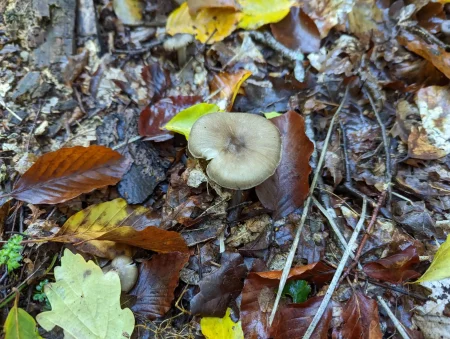
Figure 3.
Unidentified
The Outpost Area
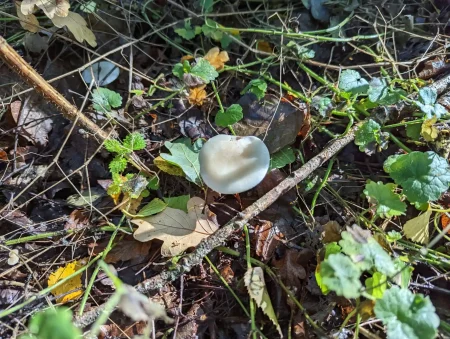
Figure 3.
Coprinopsis lagopus
The Outpost Area
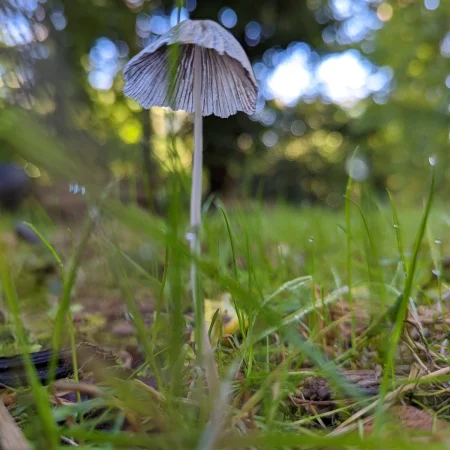
Figure 3.
TRAIL END AREA
I went to visit the Fuligo septica from week two to find that it had moved along the log from it’s previous position and I had to turn the log over to see it.
Nearby I noticed some Parasola conopilea.
I also spotted some rotting Xerocomellus (Fig. 3.13) and a bright, scaly Gymnopilus junonius (Fig. 3.14) at the end of the woodland trail.
